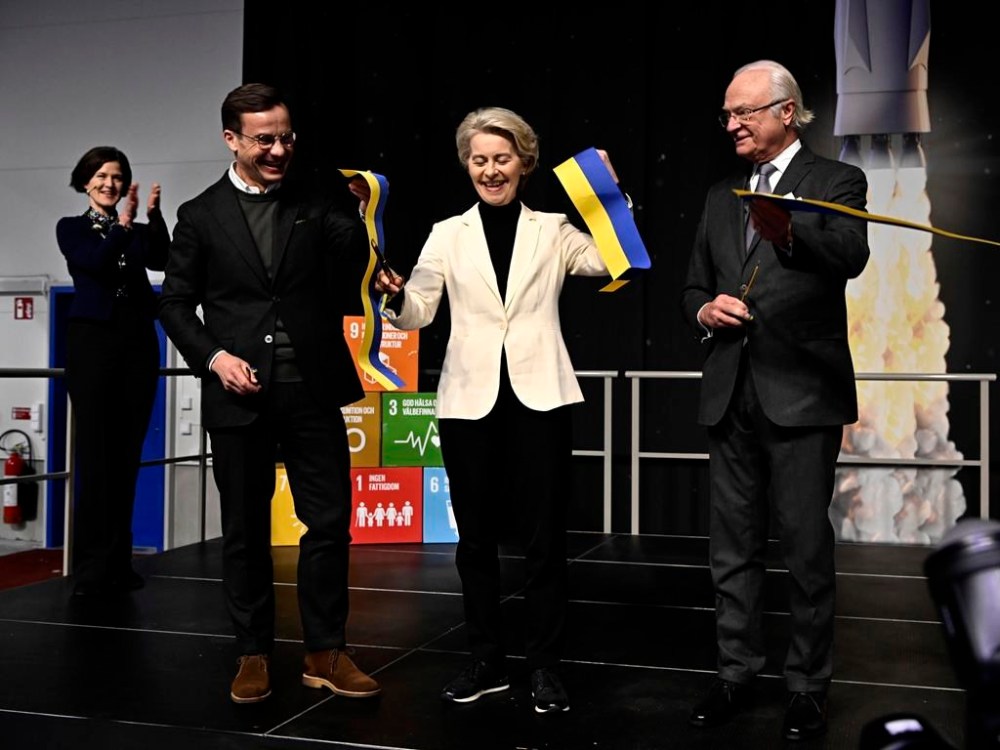EU inaugurates first mainland satellite launch port
Advertisement
Read this article for free:
or
Already have an account? Log in here »
To continue reading, please subscribe:
Monthly Digital Subscription
$0 for the first 4 weeks*
- Enjoy unlimited reading on winnipegfreepress.com
- Read the E-Edition, our digital replica newspaper
- Access News Break, our award-winning app
- Play interactive puzzles
*No charge for 4 weeks then price increases to the regular rate of $19.00 plus GST every four weeks. Offer available to new and qualified returning subscribers only. Cancel any time.
Monthly Digital Subscription
$4.75/week*
- Enjoy unlimited reading on winnipegfreepress.com
- Read the E-Edition, our digital replica newspaper
- Access News Break, our award-winning app
- Play interactive puzzles
*Billed as $19 plus GST every four weeks. Cancel any time.
To continue reading, please subscribe:
Add Free Press access to your Brandon Sun subscription for only an additional
$1 for the first 4 weeks*
*Your next subscription payment will increase by $1.00 and you will be charged $16.99 plus GST for four weeks. After four weeks, your payment will increase to $23.99 plus GST every four weeks.
Read unlimited articles for free today:
or
Already have an account? Log in here »
Hey there, time traveller!
This article was published 13/01/2023 (1058 days ago), so information in it may no longer be current.
KIRUNA, Sweden (AP) — The European Union wants to bolster its capacity to launch small satellites into space with a new launchpad in Arctic Sweden.
European officials and Swedish King Carl XVI Gustaf inaugurated the EU’s first mainland orbital launch complex on Friday during a visit to Sweden by members of the European Commission, which is the 27-nation bloc’s executive arm.
The new facility at Esrange Space Center near the city of Kiruna should complement the EU’s current launching capabilities in French Guiana.

European Commission President Ursula von der Leyen said small satellites are crucial to tracking natural disasters in real time and, in the light of Russia’s war in Ukraine, to help guarantee global security.
“Today, we know that the brave Ukrainian forces effectively use small satellites to track the movements of Russian troops,” she said.
The first satellite launch is expected next year.
The total number of satellites could reach 100,000 by 2040, compared with the current 5,000 operational satellites, according to the Swedish Space Corp., or SSC.
“This is a giant leap for SSC, for Sweden, for Europe and the rest of the world,” SSC chief executive Stefan Gardefjord said.
“Satellites are decisive for many functions of the daily lives of today’s modern world, and the need for them will only increase in the years to come with space playing an even more important role,” he said.

